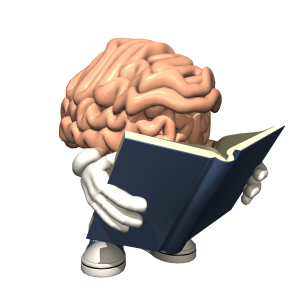
Some excellent sources for the material contained herein:
The UltraMind Solution: The Simple Way to Defeat Depression, Overcome Anxiety, and Sharpen Your Mind
The Edge Effect: Achieve Total Health and Longevity with the Balanced Brain Advantage
The Mood Cure: The 4-Step Program to Take Charge of Your Emotions–Today
This is the second article in the series on how to balance your brain chemistry with food and supplements. Please read the first article in the series:
Your Brain on Food and Supplements – Dopamine
Acetylcholine is important for memory and learning and is a neurotransmitter used throughout the body. It controls muscle contraction for example. Acetylcholine may be extremely important for long term memory. It determines your brain speed. If you have too little, your brain is going to slow down. The most extreme case of this is Alzheimer’s. You can think of acetylcholine as a lubricant for your brain and body. Acetylcholine along with dopamine are the neurotransmitters that turn your brain on. They allow it to work hard and fast. A lack of either one can lead to memory and attention problems.
People with acetylcholine dominate natures are very sensory oriented. They are creative, innovative, and open to new ideas. Generally they are socially oriented. Acetylcholine natures enjoy activities involving words, ideas, and communication. Counselors, instructors, artists, writers, and actors are likely to have acetylcholine natures.
Acetylcholine deficiency can display as Alzheimer’s, Multiple Sclerosis, dementia, dry mouth, dry skin, reading/writing disorders, speech problems, slow movement, mood swings, learning disorders, verbal memory problems, memory lapses, attention problems, difficulty concentrating, carelessness, and decreased creativity. If you crave fatty foods or have perfectionist tendencies you may also benefit from more acetylcholine.
How to Increase Your Acetylcholine Levels
This one is a little tricky because the best foods for acetylcholine are fatty. Avoid fatty red meats if you can.
- Egg yolk
- Beef liver
- Chicken liver
- Whole Egg
- Turkey liver
- Wheat germ
- Pork
- Lean ground beef
- Cod, salmon, or tilapia
- Shrimp
- Soy protein
- Peanut butter
- Oat bran
- Pine nuts
- Almonds
- Hazelnuts
- Macadamia nuts
- Broccoli
- Brussels sprouts
- Cucumber, zucchini, lettuce
- Skim milk
- Trimmed ham
- Low-fat cheese
- Low-fat yogurt
Supplements
Frankly the best way to increase your acetylcholine is through supplements. There are some fantastic supplements available. Take these 30 minutes before eating.
GPC choline – This is the best absorbed and most impressive form of choline to take. It is more expensive than phosphatidylcholine, but you absorb so much more of it and it is already in the form that exists in your cell membranes so it is well worth it. Take 500 mg to 2,000 mg daily broken up into 2 doses; one before breakfast and one before lunch.
Phosphatidylcholine – 500 mg to 2,000 mg daily in three doses.
Phosphatidylserine – This has a long history of research to back it up Take 500 mg to 2,000 mg daily broken up into three doses.
The following supplements help preserve acetylcholine in your brain and body:
Acetyl-L-Carnitine – You are out of your mind IMHO if you don’t take this amino acid supplement. It is extremely safe and has such fantastic potential that you should take it if there is any chance in hell that even a small fraction of it’s potential benefits work. I will discuss it more in a future article. Take 1,000 mg to 3,000 mg daily divided into three doses. Combine it with R-Lipoic Acid for powerful synergistic effects. Take 100 mg to 300 mg daily divided into three doses.
Manganese – This is a mineral that preserves acetylcholine. Take 1 mg to 5 mg daily.
Huperizine-A – Take 200 mcg daily in three divided doses. This is an herbal extract and is a proven acetylcholinesterase inhibitor. This means it prevents the breakdown of acetylcholine. This supplement borders on a drug, but it has proven benefits for example in Alzheimer’s patients. I think it is very safe but make your own decision.

Tagged as: acetylcholine, brain chemistry, learning, memory, Neuroscience
